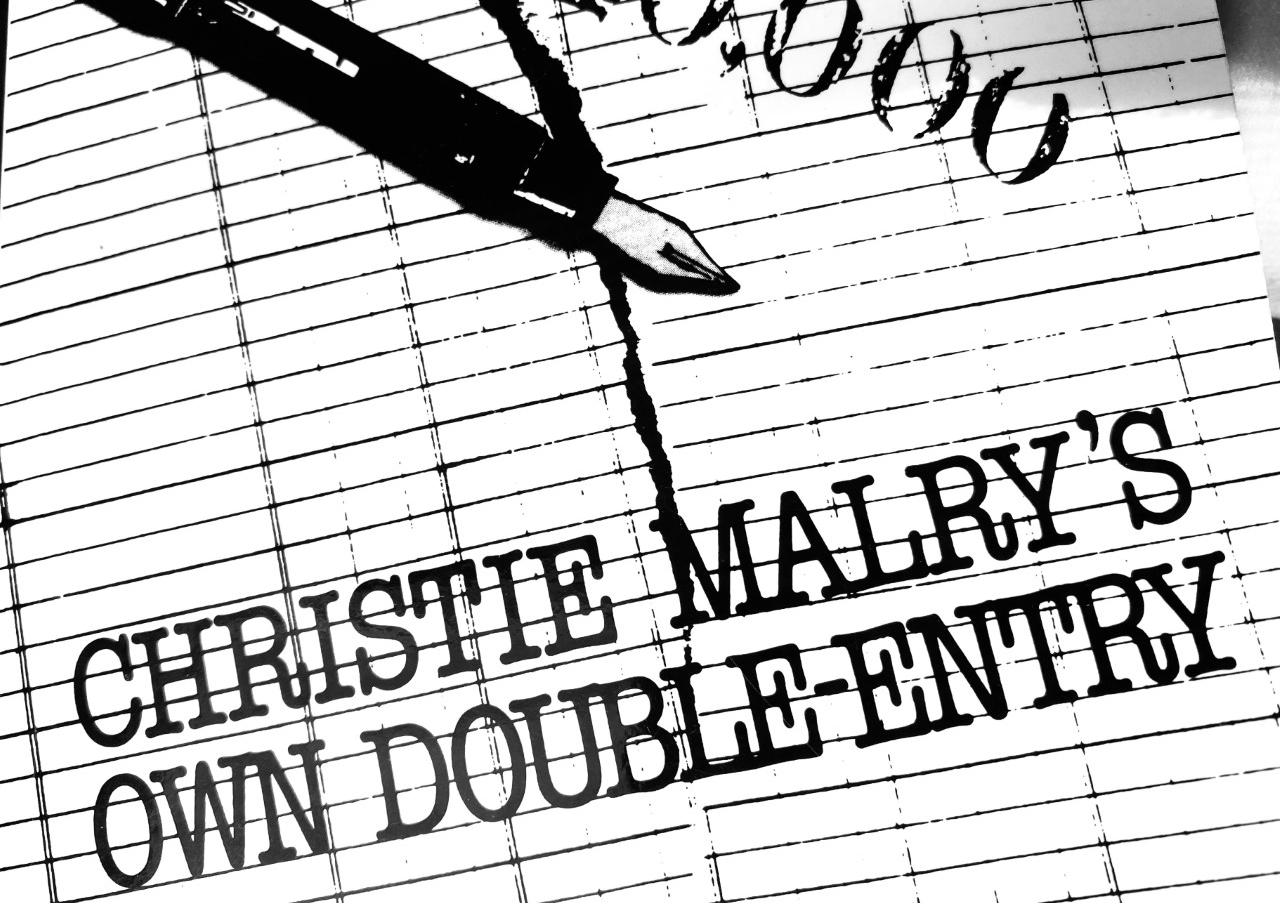In Part 2 of Superstructure’s “Postmodern Money Theory!” series, Rob Hawkes and Scott Ferguson explore B.S. Johnson’s postmodern novella, Christie Malry’s Own Double-Entry (1973), which self-consciously weaves money and accounting into the very fabric of literary form. Regarded as brokering a broader transition between modernism and postmodernism, Johnson paradoxically conceded that “to tell stories is to tell lies,” while remaining committed to the revelatory “truthfulness” of literary form. In Christy Malry’s Own Double-Entry, Johnson tells the metafictional story of a disaffected young man, Christie Malry. Throughout the book, Malry applies the principles of double-entry bookkeeping in response to injustices in his life, “crediting” himself against society in an increasingly violent manner for perceived “debits.”
Our co-hosts trace Christy Malry’s multifaceted approach to accounting, which cuts across questions of money, narrativity, enumeration, and reckoning in economic, ethical, historical, and even biblical senses. Affirming the text’s defamiliarizing insights, Rob and Scott unpack how Johnson’s satirical and estranging use of language unsettles dominant visions of money as a merely finite and located particular. At the same time, however, they also weigh the book’s problems and limits, flagging Johnson’s unquestioned white masculine framing of accounting, for example, despite his socialistic aspirations and attentiveness to form’s social restrictions. Stay tuned for the third installment of “Postmodern Monetary Theory!,” in which Rob and Scott further plumb Christy Malry’s Own Double-Entry for its postmodern lessons about the aesthetics and politics of credit and debt.
Visit our Patreon page here: https://www.patreon.com/MoLsuperstructure
Music: “Yum” from “This Would Be Funny If It Were Happening To Anyone But Me” EP by flirting.
http://flirtingfullstop.bandcamp.com
Twitter: @actualflirting

[…] Launching a new Superstructure series, Rob Hawkes joins Scott Ferguson to explore the ins and outs of “postmodernism.” Postmodernism is a heterogenous and disputed regime of aesthetics and theory that arose in the second half of the 20th century. Dated to midcentury, but promulgated as a discourse from the 1970’s to 1990’s, postmodernism is known primarily for its preoccupations with multiplicity, difference, surface, language, image, constructedness, reflexivity, and the integration of art and everyday life. Decades past its heyday, postmodernism today frequently serves as a pejorative for reactionary critics of social and ecological justice and aesthetic diversity. In their conversation, Rob and Scott critique noxious voices both outside and inside of today’s Modern Monetary Theory movement, who similarly wield postmodernism as epithet to discredit and police money’s contestable public capacities to provide for all. Our co-hosts dismantle such false zero-sum invectives by weighing the historical nuances and semantic surfeits of terms including modernity, modernism, postmodernity and postmodernism. As a result, this episode prepares the groundwork for a forthcoming engagement with B.S. Johnson’s postmodern novella, Christie Malry’s Own Double-Entry (1973), which self-consciously weaves money and accounting into the very fabric of literary form. Check out the second installment of this series here. […]